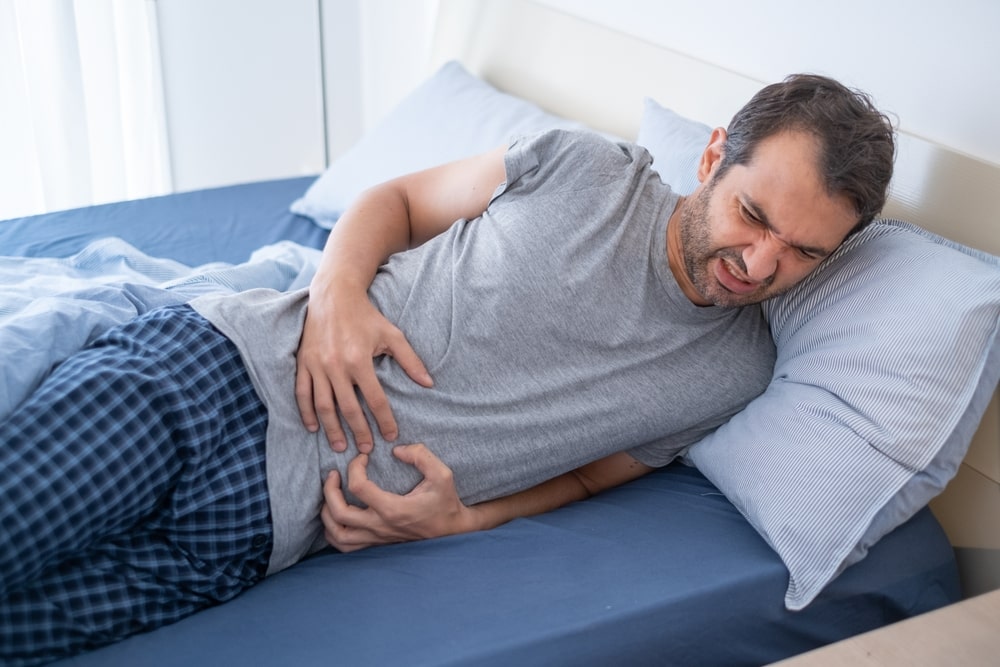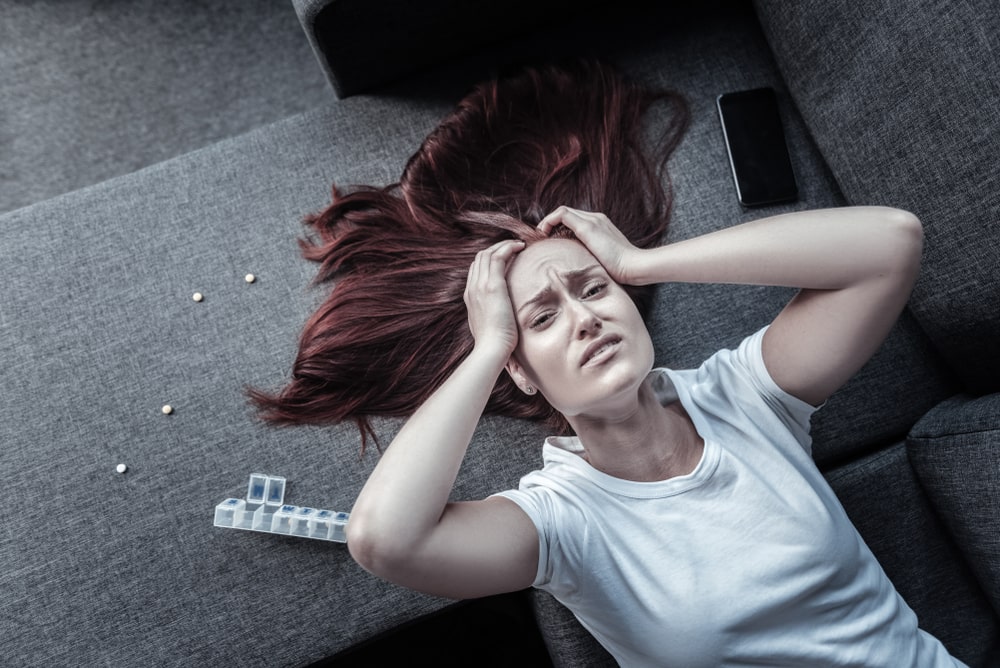
Irritable bowel syndrome (IBS) is a chronic and debilitating functional gastrointestinal disorder that is characterized by abdominal discomfort associated with altered bowel movements. IBS is highly common and is said to affect 9%-23% of the population across the world. Although the symptoms of IBS vary, according to Cleveland Clinic, some of the most common symptoms include the following:
- Abdominal pain or cramps, usually in the lower half of the abdomen.
- Bloating.
- Bowel movements that are harder or looser than usual.
- Diarrhea, constipation or alternating between the two.
- Excess gas.
- Mucus in stool (may appear whitish).
- Incomplete bowel movements.
Recent research has shown that “many symptoms of IBS are related to hypersensitivity of the nerves found in the wall of the gastrointestinal tract.” Anxiety and digestive problems often go hand in hand. These two conditions are closely connected, and they often interact in a bidirectional manner:
- Studies have found that higher anxiety can trigger more severe IBS symptoms.
- One report suggests that the connection may be due to shared genetic pathways between IBS and anxiety.
- Chronic stress and anxiety may cause a decrease in blood flow and oxygen to the stomach and contribute to low-level inflammation in the body. This may affect the gut lining and exacerbate IBS symptoms.
- The mind and the gut are closely intertwined in what experts call the gut-brain axis, which is essentially a two-way signaling system between one’s brain and digestive tract. Anxiety and other emotional factors can influence gut function and vice versa. As explained in Impact of Psychological Stress on Irritable Bowel Syndrome, “Stress-induced alterations in neuro-endocrine-immune pathways acts on the gut-brain axis and microbiota-gut-brain axis, and cause symptom flare-ups or exaggeration in IBS.” Hence, changes in gut function can lead to alterations in mood, creating a feedback loop.
It is highly common for IBS and anxiety to co-occur as data indicates that nearly 40% of IBS patients also suffer from an anxiety disorder. While anxiety does not cause IBS, nor does IBS cause anxiety, the two disorders are known to exacerbate each other, leading to what’s often described as gastrointestinal-specific anxiety (GSA). Understanding the connections between anxiety and IBS can inform treatment protocol. IBS is a stress-sensitive disorder and effective treatment for IBS should focus on managing stress and stress-induced responses.
Treatment In Calabasas
Calabasas is a city in California. It is a well-known suburb of Los Angeles, located west of the San Fernando Valley and north of the Santa Monica Mountains. Over the past decade, the city of Calabasas has grown in its reputation for luxury as well as for privacy which makes it a hidden gem for residential living for society’s elite, and one of the most desirable destinations in Los Angeles County. It is also home to a plethora of highly qualified mental health clinicians providing an array of therapeutic services and treatment options.
The information above is provided for the use of informational purposes only. The above content is not to be substituted for professional advice, diagnosis, or treatment, as in no way is it intended as an attempt to practice medicine, give specific medical advice, including, without limitation, advice concerning the topic of mental health. As such, please do not use any material provided above to disregard professional advice or delay seeking treatment.









